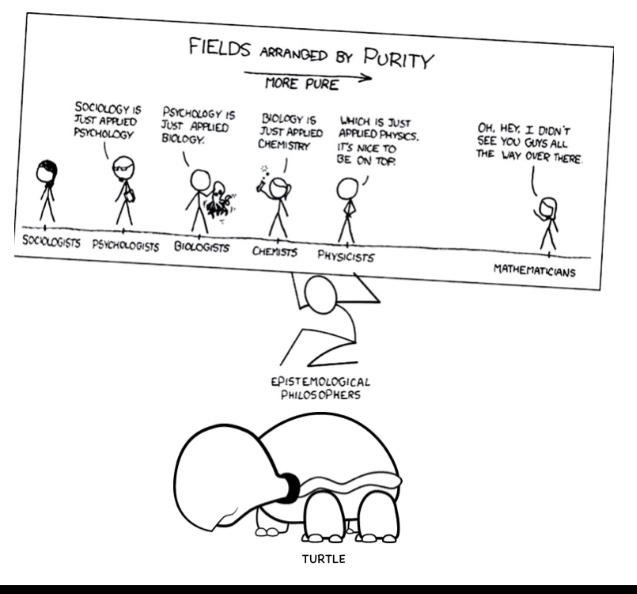Guide to learning epistemology
Street epistemology using Socratic method and Bayesian statistics.
unfinished lots of missing stuff
Epistemology is the study of knowledge, and you can use it to see if a belief is true. Since knowledge is a subset of belief, We don't need absolute certainty to take action. We can be convinced that the belief is true, and take action based on that. Imagine a line with psychology at the very left, and then moving left, we have biology, chemistry, physics, and math, and the fields get more concrete as we move to the right. Epistemology includes

standard of evidence
pyramid. so imagine a pyramid with three layers. The top layer is called What? It's the claim or belief. The second layer is called Why? It is the reasons for why we believe the claim. It could be good or bad reasons. It could be evidence or reason. The third foundation layer is called How? It is how do we know that the belief is true? How do we know if we are using reliable methods to know if the belief is true. Or how does the evidence support the claim. I could believe a claim, have reasons to support the claim, but if I am using unreliable methods to know that the claim is true, then I would have to be less confident in my belief in the claim. Or the type or quality of evidence is not justified to believe the claim. If the foundation layer falls apart, the whole pyramid collapse as well.
Gumball. Let's say we have a gumball container. The number of gumballs inside must be either odd or even, and can not be both. Now let's say Bob says, "the number of gumballs inside is even." Since we have not counted up the number of gumballs inside yet, we can not make a judgement of whether it is odd or even. We can only say we don't know, until we count the gumballs. If we don't believe Bob saying the number of gumballs is even, it doesn't mean we believe it is odd, it means we don't have enough evidence to say whether it is odd or even, so we can't believe Bob yet.
socratic questioning is a tool we can use to figure out if something is true and it helps us learn more and get more information to make judgements.
Bayesian epistemology is a way of gauging our confidence in a claim or belief. bet. For example, we can be 60% confident that we have COVID. updating our beliefs based on new info
curious, empathetic